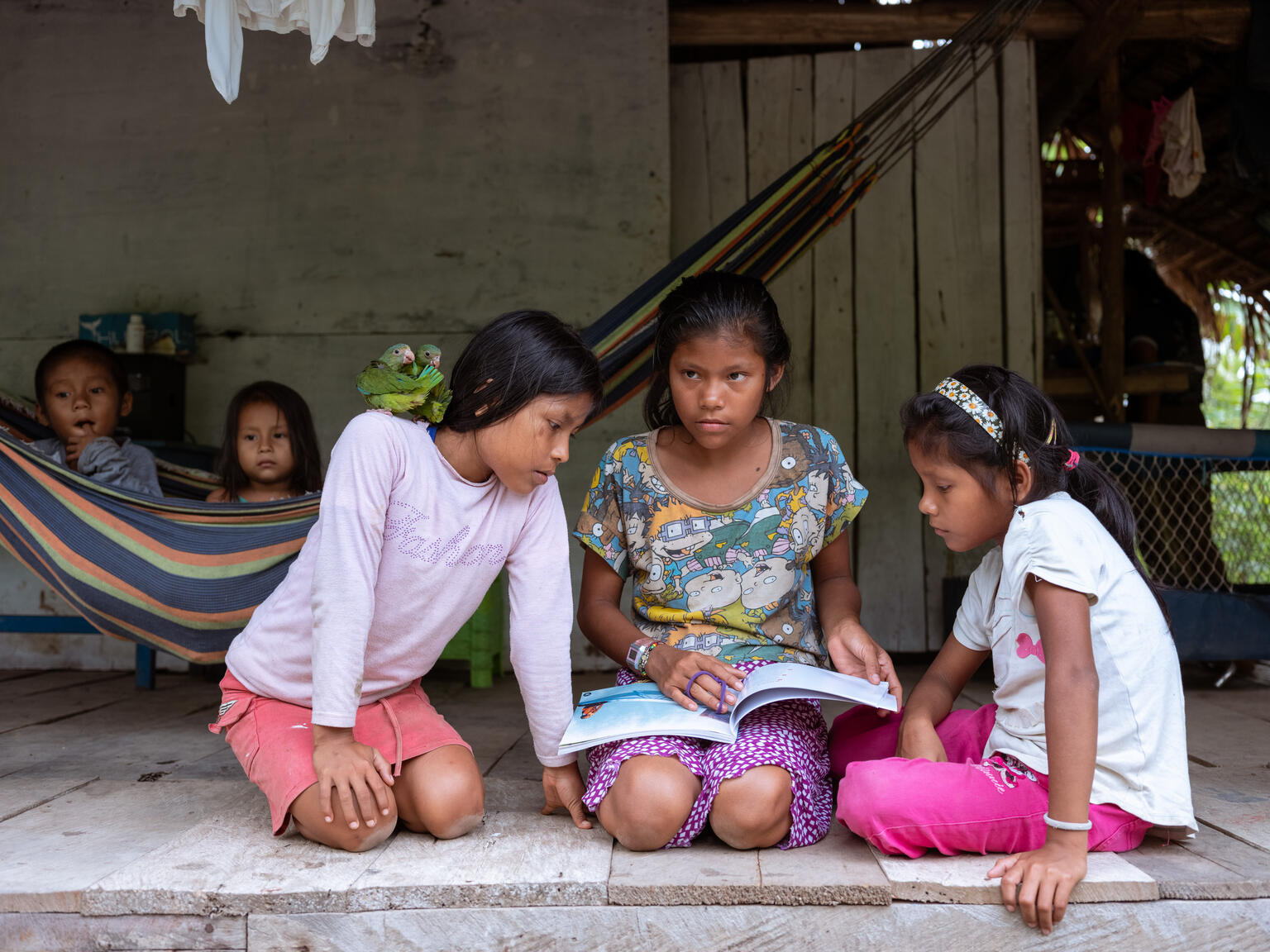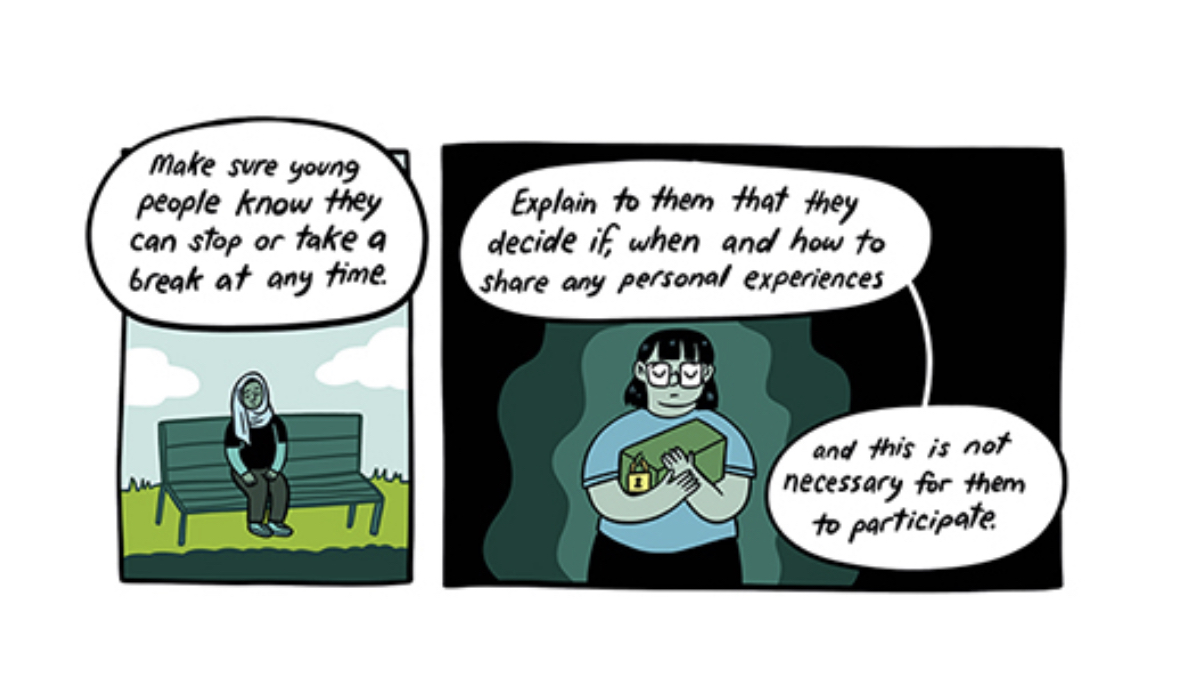
Facing childhood sexual abuse and exploitation is a traumatic experience that has devastating and long-term consequences. The voices of those who have survived are crucial in finding the best prevention and response measures.
Developing data and evidence with young survivors is necessary – but not always easy. Speaking out on trauma despite fear and stigma is a complicated process that requires both survivors and young people to know the best way to create healthy exchange.
Our voices, a programme of Safer Young Lives Research Centre at the University of Bedfordshire, promotes the involvement of children and young people affected by sexual violence in research, policy and practice.
They have developed an engaging new way to shed light on learnings about involving children in research – ‘Seeing things from both sides’ is a comic that can help enable dialogue and help young survivors and professionals understand each other’s views when talking about sexual abuse and exploitation. The comic is a great example of educating stakeholders so that children’s participation is encouraged and their voices incorporated in an appropriate way.
The comic is based on an international research study exploring the outcomes associated with the participation of children and young people affected by child sexual abuse and exploitation. The research involved 58 experts from 18 countries, and young people with lived experience of child sexual abuse and exploitation alongside a range of adult professionals who work in this field. While it found many potential benefits of young survivors informing and influencing decision-making, there were also concerns about the risks and tensions of involving young survivors in initiatives.
The comic shares the differing perspectives of young people and professionals surrounding four specific themes that were identified as particularly complex – readiness of survivors to share their stories, triggers of trauma, fear and anger and public disclosure of abuse. It aims to show how considering different views can help to support opportunities for safe and meaningful participation for young survivors.
Through characters and dialogue, it reveals easy-to-understand best practices that can create a productive, safe and enabling environment to learn about the experience of children.

Image: example from comic
Examples of the comic’s recommendations for children are:
- Talking to research professionals about what is going to be done in a session before sharing their experiences and voicing any concerns
- Knowing that they must never be forced to share things they do not want to
- Feelings of anger and frustration are normal and common in the aftermath of abuse and have the potential to be used to positively influence change, and it is helpful to talk to professionals involved in the project to discuss how they can help respond and work with these emotions in a way that helps the survivors and others around them.
And for professionals are:
- Keeping young people well informed of the risks of participating in studies where they share experiences
- Knowing that recovery is not ‘linear’ and different participants may respond very differently.
Read the full comic and a blog about the process of developing it here.
Image: © UNICEF/UN0724633/Florence Goupil